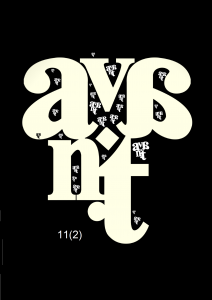Affordances theory as an operational framework for interpretation of past material culture and practices. Praxiography of things, bodies, and motions
Affordances theory as an operational framework for interpretation of past material culture and practices. Praxiography of things, bodies, and motions
Author(s): Maciej TalagaSubject(s): Epistemology, Cultural Anthropology / Ethnology
Published by: Ośrodek Badań Filozoficznych
Keywords: affordance; praxiography; embodied research; neo-materialism; knowledge;
Summary/Abstract: Material culture is seen as a sort of adaptation in humans’ (and some animals’) struggle with the natural environment. In this context, it is possible to say that culture integrates three aspects of embodied agency: the mind creates projects, the environment supplies materials, and the body provides the basic tool. This observation is important for reconstructing past manifestations of human embodiment, e.g. tools, anthropogenic landscapes, or somatic skills and practices. The present paper discusses the neo-materialist perspective on the objectives and methods of historical sciences which postulates extending the agenda of historical research by supplementing text- and discourse-centred studies with the ‘mute’, material relics of the past as yet another source of knowledge. This stems from the conviction that, as researchers engage physically with investigated objects and experience their affordances, they can gain crucial information which would be impossible or very problematic to convey in a written form. What this means for the reconstruction of material relics of the past or historical somatic skills is that the most complete source of knowledge is provided by a combination of historical context, especially the relics’ culturally-defined function, and methodical practice (praxiography), which often enables overcoming difficulties posed by the inadequacy of available written accounts. The above observations were illustrated with three case studies presenting reconstructions of elements of historical material culture: the so-called ‘Antikythera Mechanism’, the ‘Teutonic estoc’ from the Princes Czartoryski Collection, and a medieval sword-fighting technique known as schiessen.
Journal: AVANT. Pismo Awangardy Filozoficzno-Naukowej
- Issue Year: 2020
- Issue No: 2
- Page Range: 1-22
- Page Count: 22
- Language: English

